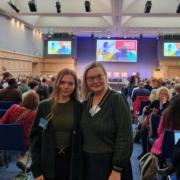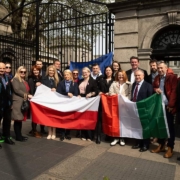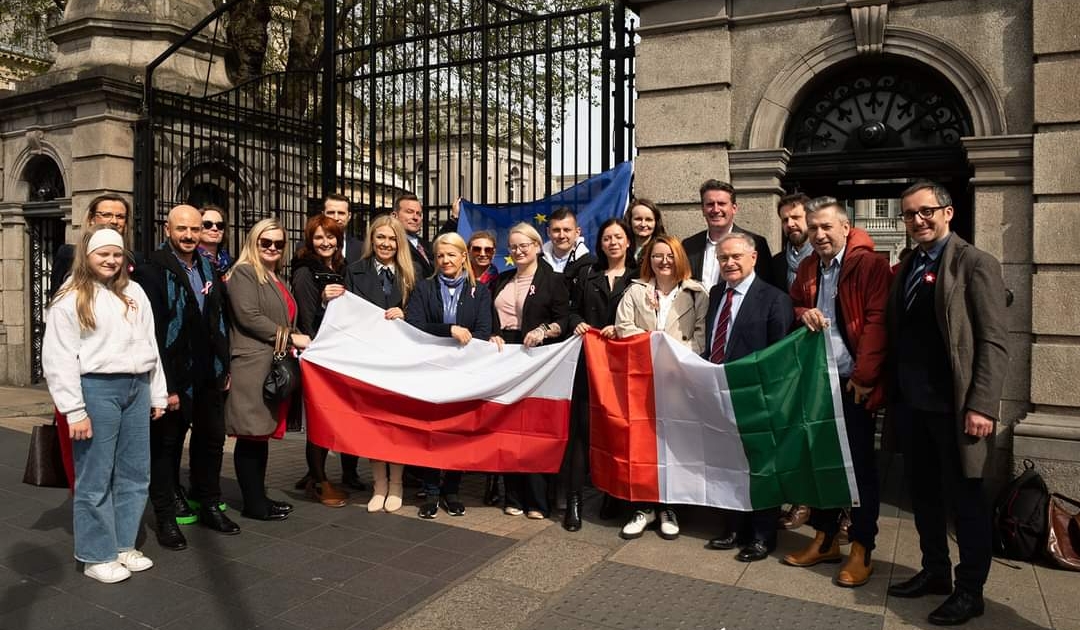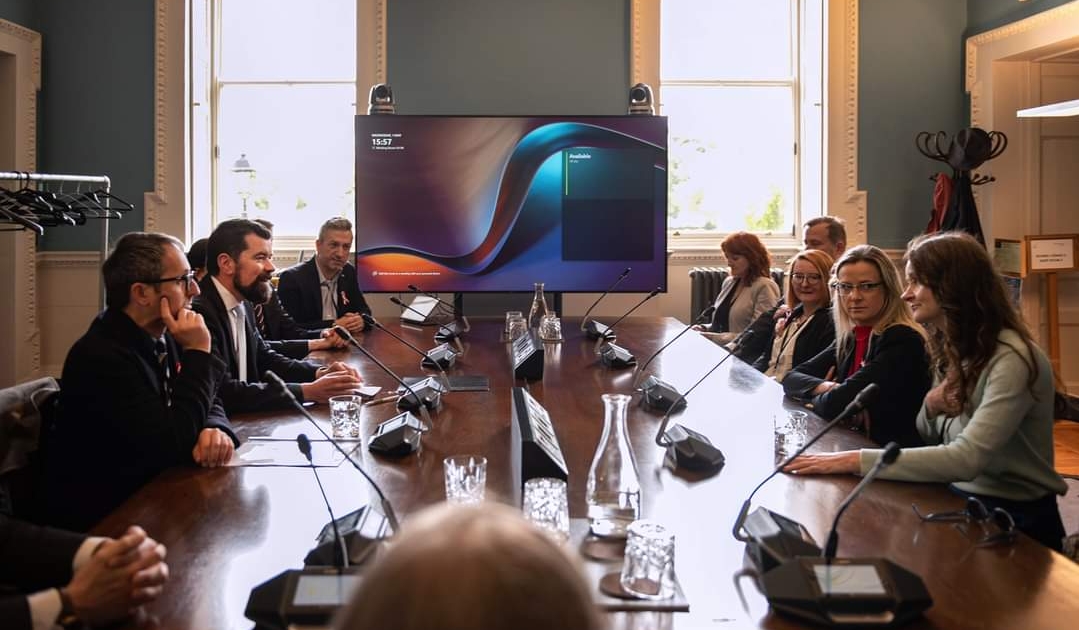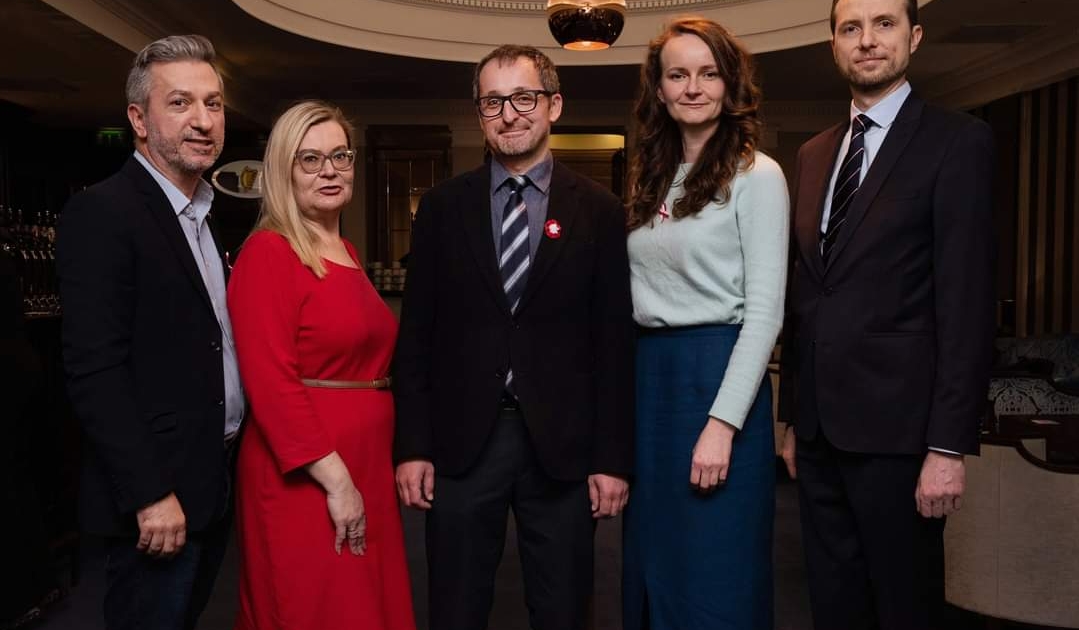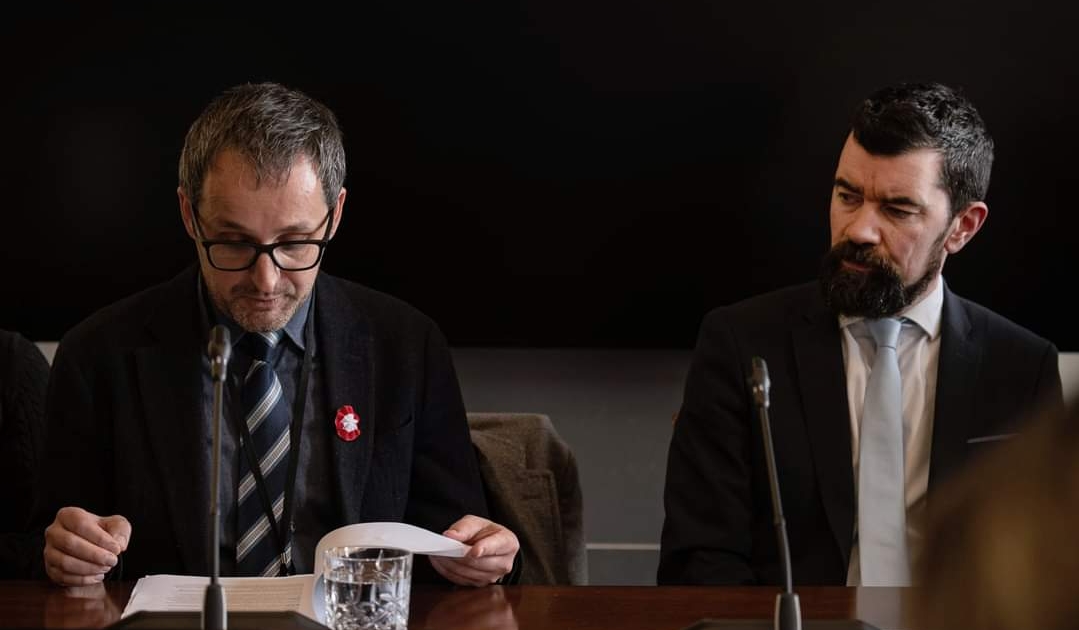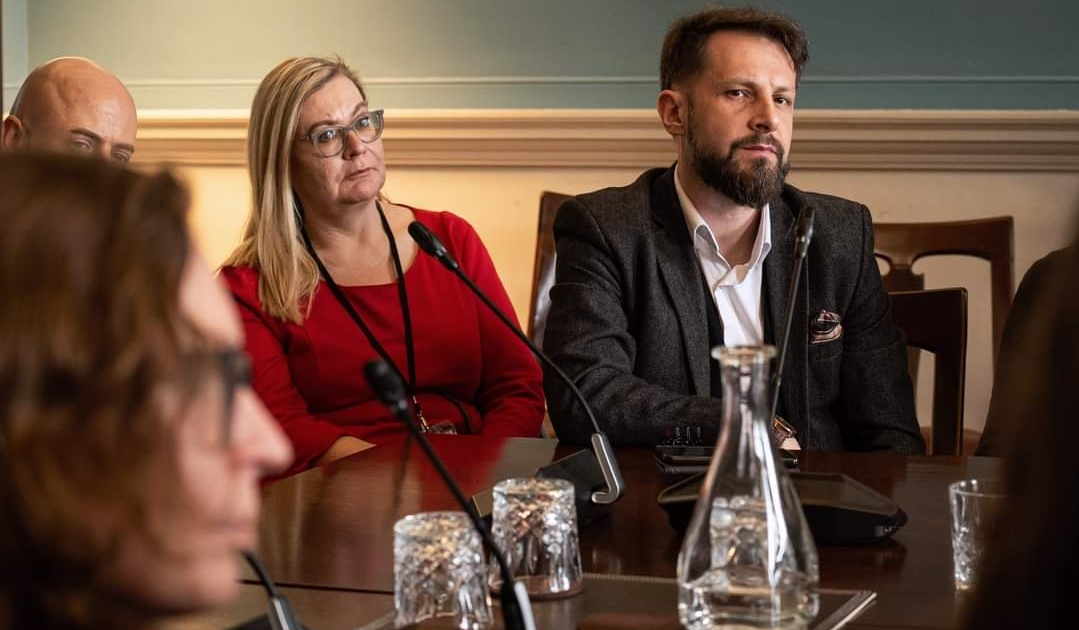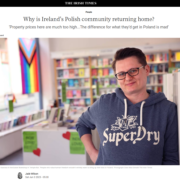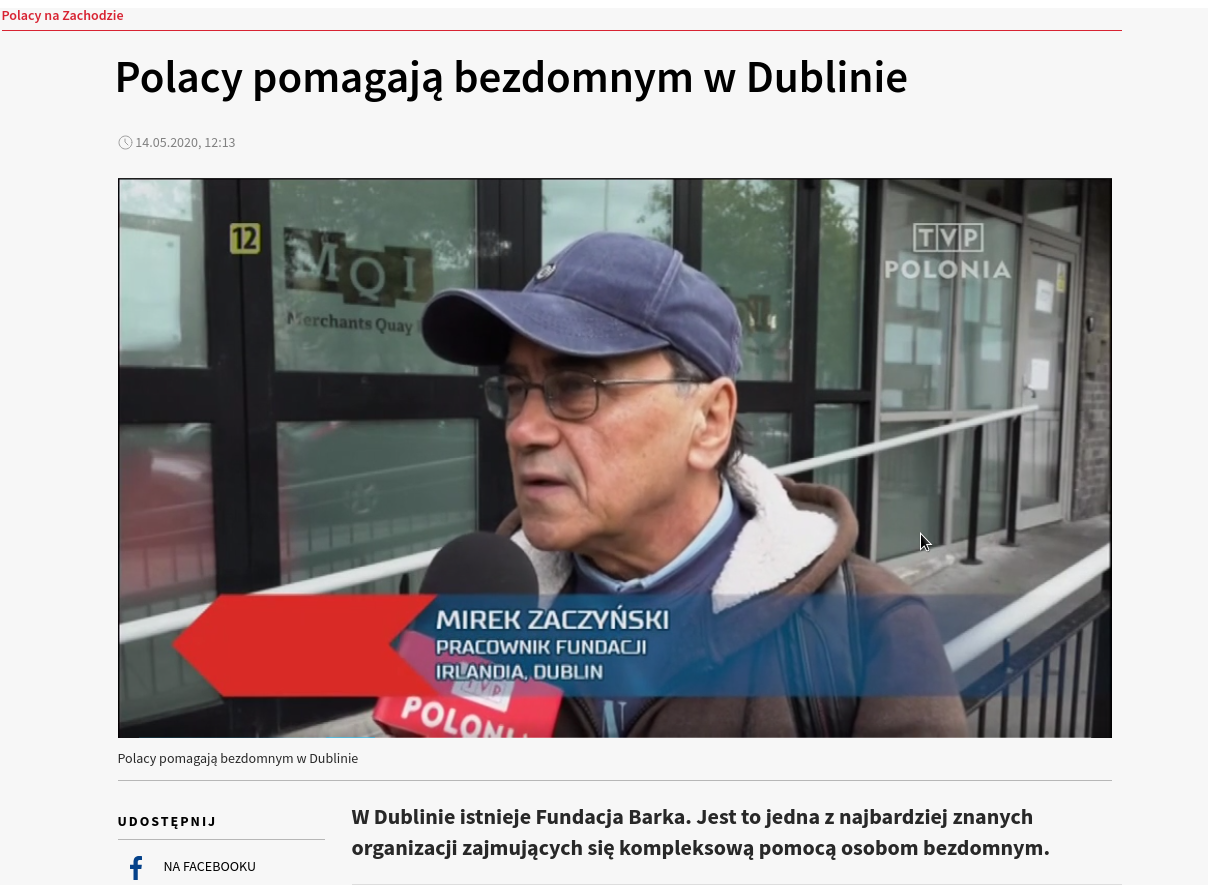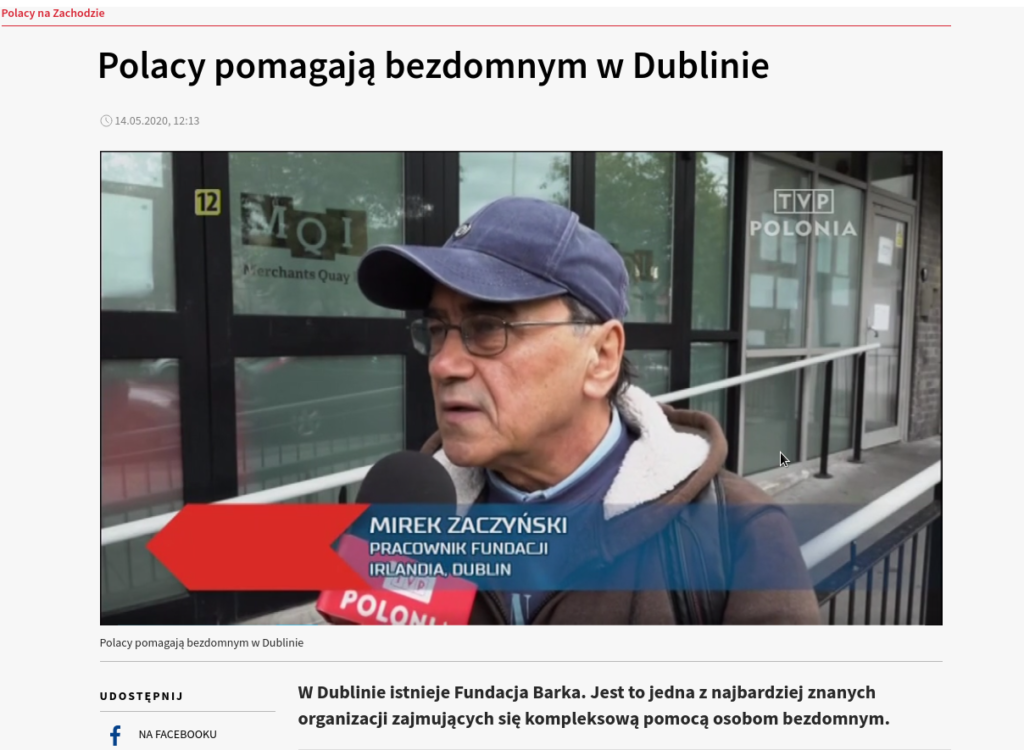Marta Starosta has lived in Ireland for almost 20 years now, having moved here as part of a large wave of Polish people who emigrated in search of better working opportunities in 2004, when Poland joined the EU.
Ireland was one of the few countries to allow immediate access to its labour market after EU accession of Poland, and Starosta was one of thousands who “moved here initially for work” at that time.
“It was great fun and good money compared to Poland. Then I got into bookselling and found my tribe, as they say,” she says, explaining that she never intended to stay in Ireland as long as she has.
It’s a similar story for many Polish people in Ireland, but now, after the Covid-19 pandemic and due to Ireland’s housing crisis and the rising cost of living, many are leaving Ireland to return home.
“People who came here just to save money to buy a house at home would’ve saved up enough by now, and property prices here are much too high to stay in Ireland. The difference for what they’d get in Poland is mad,” Starosta says.
Starosta has considered moving home some day, but feels Poland is “still very backwards on some social issues”.
“I’m married to an Irish woman here, and that influences my decision on whether we’d ever go back. We haven’t personally faced any issues when we visit, but the Catholic Church is still very strong. I would say people who value human freedom wouldn’t entirely want to bring up their kids in Poland,” she says.
An ILGA-Europe report released in May ranked Poland as having the worst record on LGBTQ+ rights in the EU for the fourth year in a row, behind Romania and Bulgaria.
Paulina Kordyl, who is originally from Krakow but has grown up in Ireland from a young age, shares a similar outlook.
“I think the reason people are leaving is the same as why Irish people or anybody else is. Ireland has a housing and cost-of-living crisis, and all these things really add up,” Kordyl says.
However, “the social issues and lack of some infrastructures would have me veto Poland as somewhere to return to raise a family,” she says.
“While the economy may be getting better, it’s still not on par with other parts of Europe,” she says. If Kordyl were to consider moving, it would be to a city like Berlin, she adds.
The people Kordyl knows who have returned to Poland in recent years are “of my parents’ generation, who lived here for a decade or two, then began to miss their childhood and the culture there, but the problem is their memory becomes more positive than reality”.
“Then they go back and are reminded of a huge workaholic culture, and it’s a very Catholic country even still – think Ireland 50 years ago. The church has a huge say in people’s lives.”
Krzysztof Kiedrowski, a representative from the Irish Polish Society, who moved to Ireland 18 years ago, takes the opposite view, saying part of the draw for many Polish people arriving in Ireland at that time was “the similar conservative, Catholic background, and the fact that has changed so much now makes some of us want to leave”.
“I don’t like the geopolitical views of Ireland now. I’m conservative and Catholic. We had different views on issues like abortion or gay marriage and people view us as bigots. You feel like you’re not as welcome because of that,” he says.
But, Kiedrowski says, by far the biggest reason for Polish people leaving is the housing crisis.
“There are many Polish people in homeless hostels in Ireland at the moment. When people came as economic workers they wanted to save some money and send some back home but if they have to spend the majority of their wages for rent then there’s no point to be in another country.”
A spokeswoman in the Dublin office of Polish charity Barka, which works with migrants from central and eastern Europe who have fallen through the cracks and ended up homeless, said the cost of living in Ireland was “a common reason” for Polish people returning home in recent years.
Samanta Stochla lived in Ireland for 13 years but returned home to Sosnowiec in 2021, where the cost of living is much lower. The city is in the top 34 per cent of the least expensive cities in the world on the database Livingcost.
Her decision to return home was “also connected to Covid and my studies being finished”, Stochla says.
The pandemic made people realise “there is more to life than just living abroad for money”, and not being able to visit family during periods of lockdown was difficult.
“My parents were sick and I wanted to help them. I always wanted to go back to Poland and it was just the right moment for me. I miss the atmosphere in Ireland but it was the right time for me to leave,” she explains.
Another reason why the official statistic may be significantly lower in the latest census is because some children born in Ireland to Polish parents “may not be accounted for as Polish”, as many of these children would have only Irish passports, the spokeswoman from Barka said.
This is the case for Paulina Kordyl’s younger sister, for whom “for any Government purposes, we usually put her down as Irish because it’s just easier,” she says.
“Even though you can have dual citizenship, the Polish bureaucracy is a nuisance for getting documents.”
Migrant rights activist Teresa Buczkowska says another issue that influences Polish people to return home is that “nobody really pays attention to the integration needs of Polish people in Ireland because they are white and European”.
“But Eastern Europeans were highly impacted by job losses during Covid, especially women, and we are discriminated against in the labour and housing market. We also have a language barrier and have to learn English. These are issues that are not visible because there isn’t enough research done or investment in services,” Buczkowska says.
“I think we are still experiencing a high number of Polish people coming to Ireland. Migration is always a very dynamic process. But there is also a limitation to the census. it doesn’t fully capture diversity because when some people are naturalising, they might choose to only identify as Irish,” she says.
That’s a question Buczkowska will be considering for herself very soon, as she will be applying for her Irish citizenship after almost 18 years in Ireland.
“I spent half of my life in Ireland already so I consider myself Polish Irish. But if I have to choose only one category, that will be hard,” she says, explaining that she was 22 when she arrived in Ireland, 18 years ago.
“Initially, I only intended to be in Ireland for a couple of months to earn some extra money to get a good start back in Poland. Suddenly, life went on and I’m still here. Ireland right now is home,” she says.
Moving to Poland after so many years would not be “a return home”, Buczkowska says; rather, “it would be another migration”.
“I go to Poland regularly on holidays to visit family but the country changed, and I changed. I don’t have the same networks there. The life I had in Poland doesn’t exist any more.”
Despite the census statistics, the Polish embassy in Dublin continued to observe “a very high level of activity and engagement from Polish organisations”, and the Consular and Polish Diaspora section was visited by more than 30,000 customers in 2022, Anna Sochanska, the Polish ambassador in Ireland, tells The Irish Times.
“It is worth noting that Polish nationals still make up 2 per cent of Irish society and 15 per cent of the non-Irish population in Ireland. The Polish language is still the most commonly-spoken foreign language. Therefore, in the opinion of the embassy, there may be even more Polish people living currently in Ireland,” Sochanska says.
There are currently about 90 Polish organisations in Ireland, among which almost 50 are Polish supplementary schools (language and culture schools which may operate at weekends).
The Polish diaspora is “palpable in every corner of the Irish economy and society”, she says; however, the economic situation in Poland has “greatly improved and the Polish government encourages Poles to return to Poland. These may be factors that make returning to Poland an attractive option.”
While the official statistics on the number of Polish people in Ireland shows a significant decrease in recent years, in contrast, numbers from India, Romania and Brazil have increased significantly since 2016.
The number of Brazilians in Ireland has more than doubled from 15,796 to 39,556 in this period, according to the CSO.
One of the main reasons for this is that Brazilians need only a work permit to migrate to Ireland, while other countries, such as the US, require a visa, which can be a more lengthy process.
Another draw is the ability to work and study at the same time. Ireland allows foreign students to work up to 20 hours a week or 40 hours a week during holidays, allowing Brazilians to learn English at language schools while earning an income, or study other courses.
So-called “Stamp 2″ students may stay in Ireland for an eight-month period if they enrol on a six-month English language course and have access to €3,000, or €500 per month. (These rates are due to rise to €4,200 or €700 per month from July 2023.)
Learners can avail of up to three Stamp 2 immigration permissions – each eight months in duration, or a maximum period of two years.
Brazilians make up the majority of the estimated 100,000-plus adults who study at English-language schools in a sector worth an estimated €2 billion to the economy.
Paula Bastos was one of these students who moved to Ireland from Brazil one year ago “because of how easy it is to get a visa to come here”.
“I had never lived abroad before I moved to Ireland. I first came here as a student because I didn’t know I was able to get a work permit but a few months in I learned that and now I’m a teacher here,” she says.
“Most Brazilians here are doing the same thing – taking a course and working part-time officially. It’s not only easy to get a visa, but it’s also not that hard of a process to get citizenship afterwards in a few years. So it’s the idea of having a European passport that makes many Brazilians stay.”
Bastos says the Brazilian community has grown so large in Ireland in recent years that integration isn’t as much of an issue as in the past, as “Brazilians don’t need to have much of a relationship with others if they don’t want to”.
“Most Brazilian students here work as cleaners or kitchen porters and don’t have a high level of English, so it’s easier to stick to the Brazilian community,” she says.
Bastos doesn’t intend to stay in Ireland for too long, though, due to the housing crisis mostly.
“The housing crisis is just absurd. Brazilian people are paying crazy amounts to share with loads of people or just very small places far from the city centre. I was lucky but that’s because I had contacts here,” she says.
“I do miss the weather in Brazil, too, so I won’t stay here forever,” she laughs.
Alongside the increase in Brazilians in Ireland in Census 2022, the results showed the number of non-Irish citizens usually resident in Ireland has increased and now accounts for 12 per cent of the overall population.
The biggest groups were still Polish and British citizens followed by Indian, Romanian and Lithuanian.
Those with dual nationality have also increased by 63 per cent to 170,597, representing just over 3 per cent of the population.
Source: https://www.irishtimes.com/life-style/people/2023/06/03/changing-face-of-ireland-property-prices-here-are-much-too-high-the-difference-for-what-theyd-get-in-poland-is-mad/

